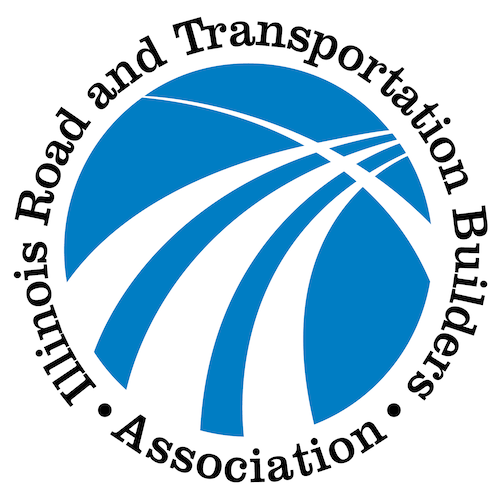Drivers and passengers in motor vehicles account for nearly 95 percent of the fatalities in work zones, and 96 percent of the injuries. The number of traffic-related deaths in Illinois increased by 1.1 percent from 2016 to 2017, equating to the loss of 1,090 people in 998 crashes. On average, 4,500-5,500 crashes occur in Illinois work zones every year. In 2017, there were a total of 5,423 work zone motor vehicle crashes, resulting in 1,435 injuries and 30 fatalities.
IRTBA works diligently to ensure Illinois' transportation network is safe for all users - including motorists, pedestrians, construction and maintenance workers, and passengers. Our Construction & Work Zone Safety Committee provides knowledge transfer of safety matters to members through training opportunities of value and relevance, review of OSHA regulations, and member citations to provide assistance resolving safety matters and improving safety throughout the transportation industry. IRTBA provides safety tips and resources accessible to members of the public here on our webpage.
Follow the Laws
Illinois law prohibits the use of hand-held cellphones, texting, or using other electronic communications while operating a motor vehicle.
Hands-free technology is permitted for individuals over the age of 19. However, this technology can still be a dangerous transaction. The Secretary of State recommends that if you must take a phone call, even with hands-free technology, it is recommended that you pull to the side of the road before making a call.
It is illegal to talk on the phone – even while using a hands-free device – in a work zone or school zone. The only time cell phone use is permitted by Illinois drivers is:
- While the vehicle is in neutral or park due to obstructions
- While parked on the shoulder of a roadway
- To report an emergency
Workers do not need to be present for work zone laws to apply - uneven pavement, changing
traffic patterns, narrower lanes, and heavy equipment frequently moving in and out of work zones require reduced posted speed limits for the benefit of motorist and worker safety.
Illinois uses Photo Speed Enforcement when workers are present.
Drivers must abide by Scott’s Law, which requires them to yield to slow down and if possible, change lanes when approaching ANY vehicle with its hazards on, not just emergency and maintenance vehicles.
Severe Penalties
Fines for speeding violations in work zones begin at $375 for the first offense. The fine for a second speeding offense in a work zone is a $1,000 minimum. Court appearances are mandatory for speeding violations in work zones.
Enhanced penalties apply in the event of property damage, injury, or death under Scott’s Law. Hitting a worker in a work zone could result in a fine of $10,000 and up to 14 years in jail.
Know the Facts
Drivers and passengers are more likely to be injured and are more likely to be killed in a work zone than workers. In 2017 crash data, the most current, complete data available in 2019, there were 143 drivers injured and 14 driver fatalities in work zone crashes. 42 passengers in work zone crashes experienced injuries and 13 were killed in 2017. Construction workers saw 7 injuries and 2 deaths in work zone crashes in 2017.
Of the total work zone crashes (5,423) in 2017, 24 of those crashes were fatal, killing 30 people and injuring 1,435 others. Urban roadways are also much more likely to experience a work zone crash. In 2017, 4,047 work zone crashes were on urban roadways, as compared to 1,375 crashes on rural roadways.
In 2017, there were 30 deaths in work zones. Of those:
- 2 were construction workers
- 14 were drivers
- 13 were passengers
- 1 was a pedestrian
What You Can Do?
Never use a cell phone or electronic devices.
Expect the unexpected.
Slow down and do not tailgate.
Obey road crew flaggers and signage.
Be patient, be alert, and stay calm.
Pay attention to lane changes, incidents, and warnings.
Watch for workers.
Move over & reduce speed for ALL vehicles with emergency flashers on.
If you must pull over or are in an accident in the work zone, stay in your vehicle and call *999 for non-emergency road assistance.

